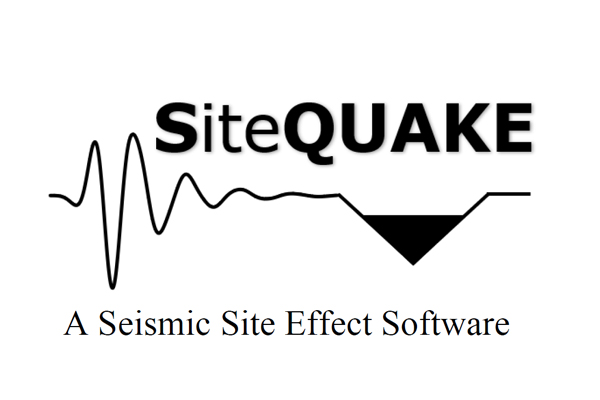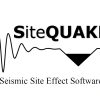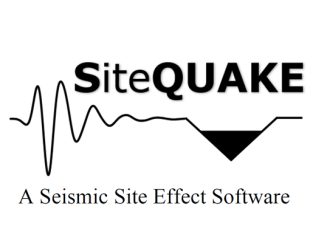Description
SiteQUAKE: A Seismic Site Effect Software: Abstract
SiteQUAKE is a user-friendly two-dimensional plane strain hybrid finite element/boundary element (FE/BE) software for quasi-static and dynamic analyses of porous geomaterials. The FE framework is developed to model the complex behavior of porous sediments filled the valleys (near-field) while the BE framework deals with seismic wave propagation in far-field. Combining the FE method with the BE technique in SiteQUAKE makes it an ideal framework to address numerical issues with regard to wave propagation in unbounded domain. The program is developed in such a way that each framework (FE and BE) can be separately employed for one-dimensional (1D) or two-dimensional (2D) geotechnical analyses.
Implemented constitutive soil models in SiteQUAKE enable users to analyze the (poro)elasto-plastic behavior of geomaterials subject to various loading conditions ranging from typical static to dynamic loads, e.g. dynamic imposed displacements, P wave, S waves, earthquake shaking and sudden impact loads at any incidence angle.
Compared with other commercially available software, SiteQUAKE benefits from the BE framework instead of absorbent boundaries, which is a common method in various software platforms, to prevent refraction and wave scattering in dynamic analyses. The existence of different constitutive models, particularly an elasto-plastic constitutive model based on the generalized multi-plasticity theory, is another merit of SiteQUAKE. In addition, 2D modelling of sedimentary valleys and other topographic irregularities is of great importance in seismic microzonation and seismic site effect problems, which can be performed using SiteQUAKE.
In general, SiteQUAKE can be used for research and development purposes as well as engineering practice in civil engineering. The application varies from the stress and deformation analysis of (poro)elasto-plastic porous media, seismic site effect analysis, seismically induced liquefaction, geo-seismic hazard/risk analysis and seismic micro-zoning.
Objectives
SiteQUAKE aims to numerically analyze the effect of topographic irregularities and geotechnical properties of soil deposits on seismic behavior of a site. Furthermore, the product can be used for the design, construction and rehabilitation planning of geostructures subject to quasi-static or dynamic loadings. Different geomechanical and geometrical aspects, e.g. various constitutive behaviours, soil surface and rocky bed topographies, saturation of soil medium and so on, can be taken into account in the analyses performed by SiteQUAKE.
For who?
SiteQUAKE can be used by researchers, decision-makers and planners, and civil engineering practitioners who deal with seismic site effect analyses in the field of geotechnical earthquake engineering. Therefore, a wide verity of users ranging from academics to decision-makers and engineering consulting companies who are involved in geotechnical engineering issues, more specifically in the field of geotechnical earthquake engineering applications, can be benefitted from SiteQUAKE.
Minimum requirements
SiteQUAKE software is developed for a Windows-based platform and thus, the software can be used in Microsoft Windows operating systems. A Windows-based system with 32 or 64 bit Intel CPU and 2 GB RAM is technically sufficient to use and develop the software. However, systems equipped with high-speed processors and more RAM is highly recommended to reduce run time and computational cost, specifically in boundary element analysis of large scale models. Developers need the Microsoft Fortran PowerStation tool to compile the source code. Users can benefit from the executable software file accompanied with the source code compatible with Microsoft Windows operating systems.
Technical support
Please address technical support questions to:
Contact: Dr. Pooneh Maghoul
Email: pooneh.maghoul@umanitoba.ca










Reviews
There are no reviews yet.